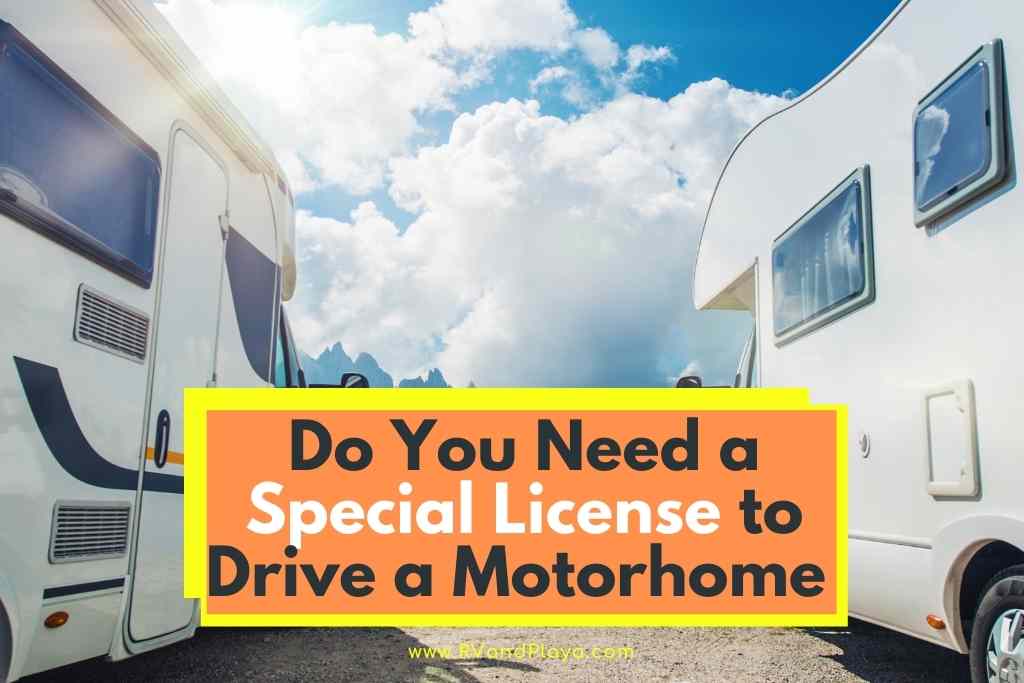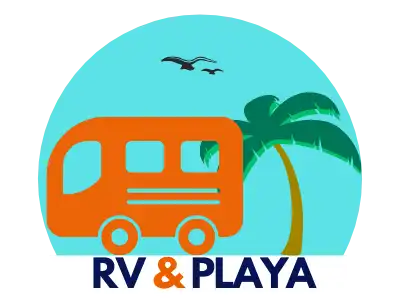Do you know if you need a special license to drive a motorhome or what are the driver’s license requirements? this is one of the questions our readers ask a lot. Well, we´ve got you covered.
At its core, a motorhome is an automobile, so it stands to reason that you need a license for it. However, not all automobiles are equal in the eyes of the law, and some of them, like eighteen-wheelers, require special licenses separate from a typical driver’s license.
A motorhome is obviously quite a unique vehicle.
So, do you need a special license to drive a motorhome? No, you do not need a special license to drive a motorhome. In most situations, a typical driver’s license is enough to legally drive a motorhome on the road. However, there are a few exceptions to this rule. If the motorhome weighed under 26,000 pounds unloaded but weighed more than that with all your stuff in it, you would need a special license to drive it when loaded up.
Table of Contents
What Type of Motorhomes Does a Standard License Allow You to Drive?
A regular driver’s license will allow you to drive most types of motorhomes. This includes:
- Class A Motorhomes (No Airbrakes)
- Class B Motorhomes
- Class C Motorhomes
- Fifth Wheel
- Travel Trailers
In the United States, your normal driver’s license will allow you to operate all of these motorhomes legally, in every single state.
As mentioned earlier though, there are some instances where a typical driver’s license may not cover the legal requirements for operating these types of vehicles. More on that below.
Special Exceptions to a Typical License
These special exemptions apply for most types of motorhomes, with the primary example being that of weight.
For any of these types of motorhomes, a standard driver’s license will not be enough if the vehicle weighs more than 26,000 pounds or is designed to carry more than sixteen passengers.
It’s important to note that the 26,000 pounds threshold includes the weight of any cargo, not just the vehicle.
Furthermore, if you are driving a Class A motorhome with airbrakes, you must also have an airbrakes license to legally operate that vehicle.
With restrictions like these, it is recommended that you check in with a vehicle registry to see if the motorhome you have in mind will require any special licenses to operate.
Unfortunately, the situation does get a little more complicated in the United States since each state has its own laws.
While the above exceptions are still generally true in all cases, the way the special licensing works varies according to state, with the main stickler being the difference between commercial and non-commercial licenses.
Read also: What Are CDL Restrictions? (Codes, Endorsements, O, E, M, and L)
Commercial and Non-Commercial Licenses
A commercial driver’s license, abbreviated CDL, is the type of license generally reserved for operators of very large vehicles, such as transport busses or cargo trucks.
Some states require a driver to have a CDL if they will be operating certain motorhomes, like the before mentioned 26,000+ pounds variety.
In other states, a CDL is not required, but a special non-commercial license may be mandatory for those operating vehicles that are that heavy for private purposes.
Some states do not require either of these types of licenses, regardless of the motorhome in question.
We will cover which states require what type of license down below, however, please keep in mind that laws often change and that it is still a good idea to check in with your DMV for the specifics before buying or renting a large motorhome that may have special licensing requirements.
Read also: Do You Need A CDL To Drive A Motorhome? (The Truth!)
States Where a Commercial Driver’s License is Mandatory
In these states (and D.C.), you must have a commercial driver’s license to operate a vehicle that weighs more than 26,000 pounds.
You should check for specifics in your state: some apply that 26,000-pound threshold solely to a single vehicle, while others apply it to the combined weight of multiple vehicles, with matters if you are towing.
- Arkansas
- Connecticut
- Hawaii
- Kansas
- New Mexico
- Washington D.C.
- Wisconsin
In the case of Wisconsin, a CDL is legally required to operate a vehicle longer than forty-five feet, even if that vehicle weighs less than 26,000 pounds.
Small things like this are why it is a good idea to check in with a DMV for all of the legalities, as
States Where a Non-Commercial Special License is Required
These states do not require a CDL, even for motorhomes that weigh more than 26,000 pounds. However, they do require drivers to have a non-commercial special license for such vehicles.
Because of the nitty-gritty details involved in all of this, including the difference between solo and combined weight vehicles, it’s always advised to check in with your DMV for legalities.
- California
- Maryland
- Michigan
- North Carolina
- Nevada
- New York
- Pennsylvania
- South Carolina
- Texas
- Wyoming
All of the states not mentioned in this list or the one prior do not require any type of special license to operate a motorhome, of any class or weight.
A standard driver’s license will be enough to legally operate a motorhome in all states not previously listed.
What About International Licenses?
The rules about international licenses vary depending on the location in question.
For instance, Canada allows international drivers to operate a motorhome so long as they have possessed their driver’s license (from their home country) for at least eight years.
That’s why you should check the laws of whatever country you will be visiting, in this case.
Generally speaking though, if you meet the legal requirements to operate a motorhome in your country of origin, you will be allowed to legally operate one in the country you are visiting.
It’s still better to do your own research and be absolutely sure though, rather than risk an uncomfortable exchange with foreign law.
Conclusion
While there may seem to be a great many legal specifics to wade through regarding this topic, it’s actually not all that bad when you get down to it, since the types of motorhomes that require special licenses are so specific.
For most drivers, all they will ever need to consider is whether or not their motorhome weighs more than 26,000 pounds.
If it does, they will need to check with their state DMV to see if there are any special laws or licenses required.
Of course, there are a few other exceptions, those being motorhomes designed to carry more than sixteen passengers, Class A vehicles with airbrakes, and vehicles longer than 45 feet in Wisconsin.
But those are very niche scenarios that won’t apply to most drivers.
At the end of the day, we recommend that you always check in with your local DMV so that you can be absolutely certain as to the legal requirements for operating a motorhome of your choice.
And remember, if you plan on crossing state lines, the legal requirements will shift based on the state you are driving in!
If you have a road trip planned, make sure you meet the legal requirements to operate your motorhome in every single state you plan on driving through, and don’t forget the small details, like adding on the weight of your cargo to the motorhome you’ll be driving.
Keep all of this in mind, and you’ll be able to avoid a lot of potential headaches when you buy or rent a motorhome, which makes any journey a lot more enjoyable.
Here are some of my favorite services, products, and Stores
Thank you for reading this article. I hope it helps you find the most recent and accurate RV, camping information. Here are some services, products, and Stores that I use and hope you´ll also find helpful.
There are affiliate links, so if you do decide to use any of them, I´ll earn a small commission. But in all honesty, these are the exact what I use and recommend to everyone, even my own family.
To see all my of most up-to-date recommendations, check out this resource that I made for you!
References
https://rvshare.com/rv/do-you-need-a-special-license-to-drive-an-rv
Recent Posts
Do you know if you need a CDL to drive an RV? this is one of the questions our readers ask a lot. Well, we´ve got you covered. It's a common, everyday experience to see an RV barreling down the...
What Are CDL Restrictions? (Codes, Endorsements, O, E, M, and L)
Do you know what are CDL restrictions – O, E, M, and L restrictions? this is one of the questions our readers ask a lot. Well, we´ve got you covered. The divide between what constitutes the...


